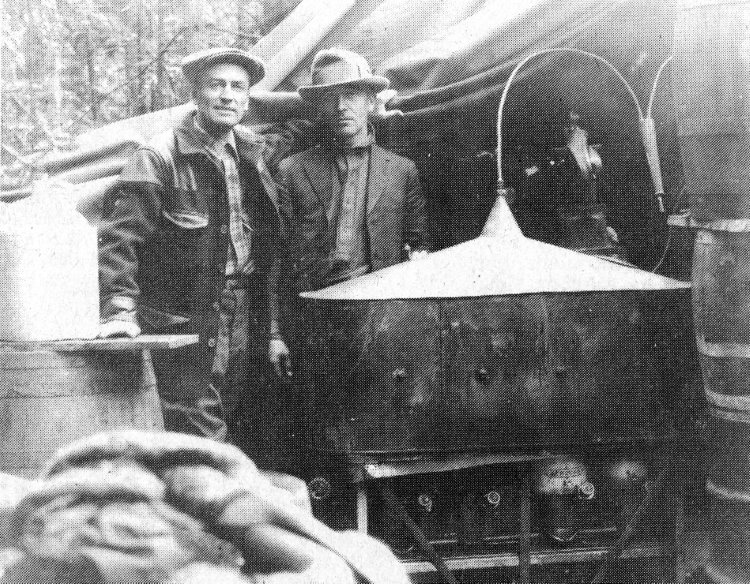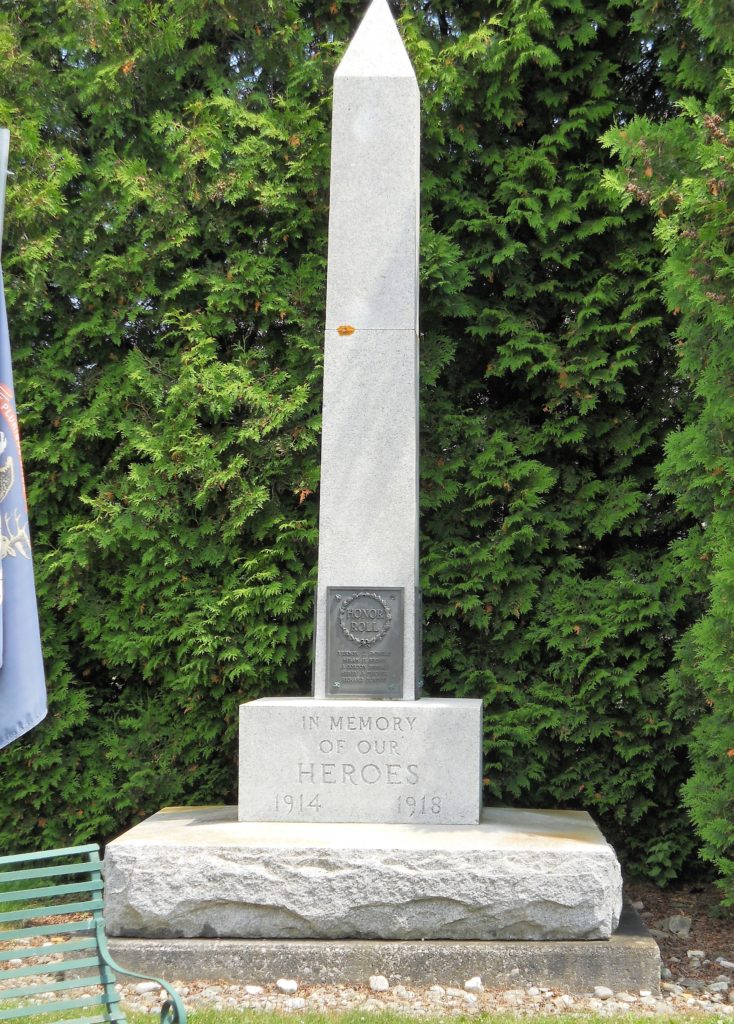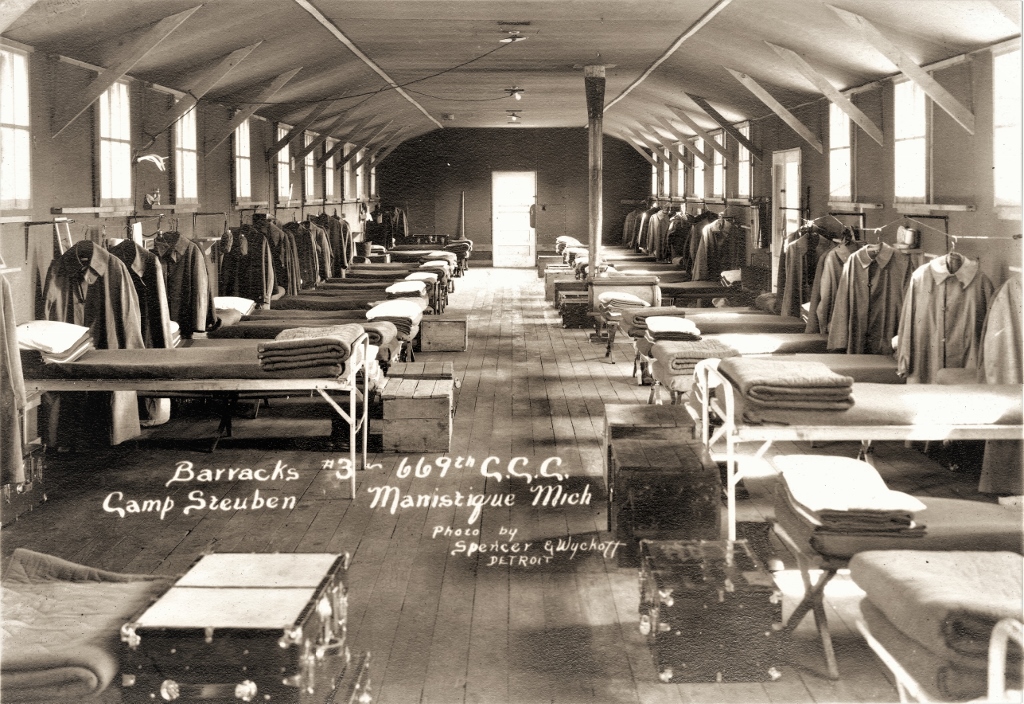
Sheriff Jack Hewitt (left) and Deputy Matt Kasun (rt.) with confiscated still. Photo courtesy the Lundstrom Collection.
The die was cast on November 8, 1916. Michigan voters went to the polls and overwhelmingly approved an amendment to the Michigan State Constitution prohibiting the manufacture, sale and transportation of alcoholic beverages. In an era prior to women’s suffrage, the statewide tally was 353,378 dry to 284,752 wet. The state prohibition amendment became the law in Michigan eighteen months later on May 1, 1918.
The immediate impact of state prohibition was to put local saloons, along with hotel bars and restaurants out of the liquor business. Those businesses that didn’t close their doors were converted to soft drink parlors, billiard rooms or lunch counters. These new establishments became popular places for social gatherings, but also fell under increasing scrutiny by law enforcement officials. The ratification the 18th amendment to the U.S. Constitution in January of 1919 ushered in national prohibition one year later on January 17, 1920.


